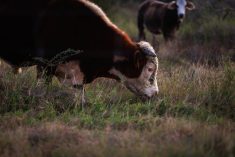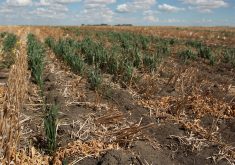REGINA — Governments have expanded and extended the Canada-Saskatchewan Feed Program available to the province’s livestock producers.
Ten rural municipalities have been added to the area eligible for the initial $150 per head payment, and the application deadline has been extended to March 15.
“We recognize the areas significantly impacted by drought this past fall and the importance in maximizing access to financial relief for livestock producers by expanding the area eligibility,” said provincial agriculture minister David Marit.
Read Also

New program aims to support plant-based exports to Asia
Understanding the preferences of consumers in Taiwan and how they differ from Indonesia or Malaysia isn’t easy for a small company in Saskatchewan.
The RMs added to the list include Britannia, Rosthern, Bayne, Lumsden, Sherwood, Bratt’s Lake, Edenwold, Lajord, South Qu’Appelle and North Qu’Appelle.
Applications must include the number of breeding animals in the herd as of Aug. 21, 2023, and kept until Jan. 31, 2024.
Receipts must be submitted to indicate extraordinary expenses including purchased feed, self-hauling or transport costs of feed, and/or land rented for additional grazing or feed production.
Cattle, bison, elk, deer, sheep, goats and horses are all eligible to receive 70 percent of extraordinary costs incurred after May 1, 2023, to the new deadline.
More details are available on the Saskatchewan Crop Insurance Corp.’s website.
Contact karen.briere@producer.com


















